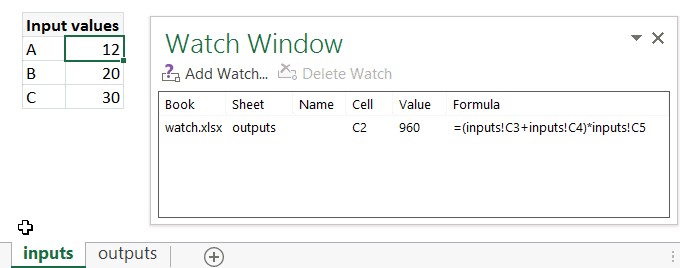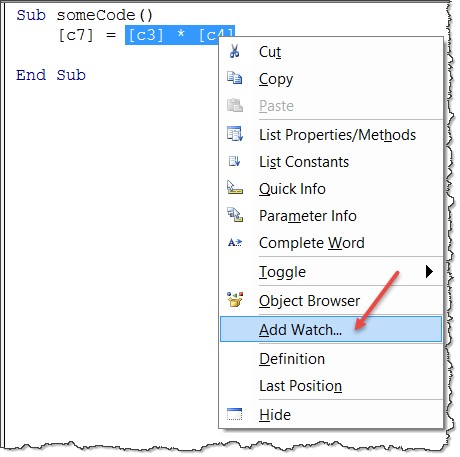Here is a familiar scenario: You are building a dashboard. Naturally, it has a few worksheets – data, assumptions, calculations and output. As you make changes to input data, you constantly switch to calculations (or output) page to check if the numbers are calculating as desired. This back and forth is slows you down.
Use Watch Window to reduce development time.
What is Watch Window:
Watch Window allows you to monitor values in other worksheets. This is very useful when you are testing your calculations / model. As you make changes to the input values / assumptions, Watch Window instantly reports the output values. See below demo to understand how Watch Window helps you.

How to Set up Watches?
Simple. Follow below steps:
- Go to Formulas ribbon tab and activate Watch Window from Auditing area.

- Select the cell(s) you want to add as Watches and click on “Add Watch” button on Watch Window
- The Watch Window stays visible until you close it. Edit input values to see the results in Watch Window instantly.

Adding Watches for VBA
Of course, Watches are a feature in almost all programming editors. Naturally, VBE also supports Watches. To add a watch to a variable / expression, just select it, right click and add Watch from the context menu.
Once you add a watch, you can monitor the expression / variable values when your code breaks. Alternatively, you can also ask VBE to break the code whenever your watch value changes.
Do you use watches?
Whenever I am developing complex pieces of VBA code or a big workbooks, I rely on watches to cut down the developing / testing time. They are very useful, light weight and simple.
What about you? Do you use watches in Excel? Share your experience in the comments section.
More ways to debug your formulas / VBA code
Check out below tips to learn more about formula / VBA code debugging:
Formulas
- Use F9 key to debug formulas
- Understand and fix Excel formula errors
- Auditing Excel formulas – a practical guide
- Show all names & their references -spreadsheet auditing
- Optimization tips for Excel formulas
VBA Development







